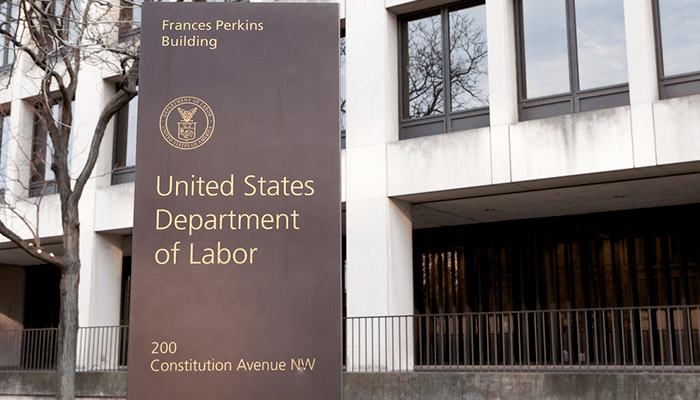- Who would this DOL Rule Affect
- A change that could put more money into RIA pockets
- So how does an RIA or Broker qualify for the exemption?
- But wait. There’s one more thing.
- How will this mix with Reg-BI
- So, what are the key points?
Regulation Best Interest compliance examinations are around the corner. Yet, just as Advisors and Brokers adapt to a new Reg-BI environment the Department of Labor (DOL) proposed a new regulation that will affect anyone who gives investment advice.
Listen about what to expect from first Reg-BI examinations
Who would this DOL Rule Affect
The new DOL regulation aims to replace the old Obama-era Fiduciary Rule struck down by a Federal Appeals court two years ago.
Now it may look as if the DOL intends to regulate just Financial Advisors, but that is not necessarily the case. Regulators intend to affect brokers and anyone making retirement-related recommendations.
Don’t forget, however, that Reg-BI basically prohibits anyone other than Registered Investment Advisors from calling themselves “advisors”.
A change that could put more money into RIA pockets
The proposed regulation would provide exemptions under the Employee Retirement Income Security Act to allow fiduciaries to receive compensation for advice.
Now you may recall from our Compliance Guide that Reg-BI will toss out most RIA compensation schemes – like bonuses, time-based sales incentives, etc.
But this new “DOL Rule” will allow fiduciaries to receive compensation – like third party payments – as long as they are recommending products in a retirement savers’ best interest.
So how does an RIA or Broker qualify for the exemption?
Most recommendations would fall within the criteria for a potential compensation exemption. 401(k) plans and individual retirement accounts will be the primary focus as long as the recommending advisor or broker is acting as a fiduciary.
Financial advisers would qualify for the exemption when working with 401(k) plans and individual retirement accounts if they follow impartial conduct standards, including earning reasonable compensation, not making misleading statements, and telling customers they are acting as fiduciaries.
Brokers who adhere to Regulation Best Interest, the new broker advice standard that will be implemented on Tuesday, will likely be deemed as being in compliance with the new DOL rule.
Advocates for the original DOL fiduciary rule — which included a contract that allowed retirement savers to sue their advisers if they didn’t act in their best interests — criticized the new DOL regulation as being too weak to curb broker conflicts of interest.
The DOL proposal still needs to pass public comments and any modifications before we know what a final rule will entail.
But wait. There’s one more thing.
Return of the 5-part DOL Fiduciary Test
In a separate rule, the DOL reinstated ERISA’s 5 part test to determine who is a fiduciary. Under the Five-Part Test, the advisor was determined to be a fiduciary if, for a direct or indirect fee or other compensation, he or she:
- rendered advice as to the value of securities or other property, or made recommendations as to the advisability of investing in, purchasing or selling securities or property
- on a regular basis,
- pursuant to a mutual agreement, arrangement, or understanding, written or otherwise, between the plan, plan fiduciary, or IRA that
- the advice would serve as a primary basis for investment decisions with respect to plan or IRA assets, and
- the advice would be individualized based on the particular needs of the plan or IRA. The preamble to the Proposed Exemption indicated the manner in which the DOL would now propose to enforce the Five-Part Test; in other words, it will interpret the five prongs in a manner to avoid artificial or technical exclusions from fiduciary status.
How will this mix with Reg-BI
The new broker advice standard as part of Regulation Best Interest will most likely comply with the new DOL rule. The two offices, SEC and DOL, show that they are working together to help make regulations more efficient. SEC Chairman Jay Clayton said DOL collaborated with the agency on setting investment advice standards.
Still, proving that a recommendation is “best interest” will be essential to qualify for more compensation. Knowing what is involved in complying with Reg-BI – from processes to terminology – and proving a fiduciary standard and the SEC’s desired “good faith effort” may be the best anyone can do to prepare for the coming DOL Rule. Proper planning for Reg-BI may minimize any new adjustments.
So, what are the key points?
- Anyone who recommends retirement-related investment products needs to know that DOL intends to allow fiduciaries to receive more compensation for best-interest recommendations;
- The 5-part fiduciary test has returned from the Obama-era DOL rule; and
- Proving compliance with Reg-BI seems to be the best measure to prepare for whatever final rule comes along in the next few months.
- Click the banner below to learn more about why hundreds of RIAs and broker-dealers are using RiXtrema’s Reg-BIOptimizer to quickly reach Reg-BI compliance.




